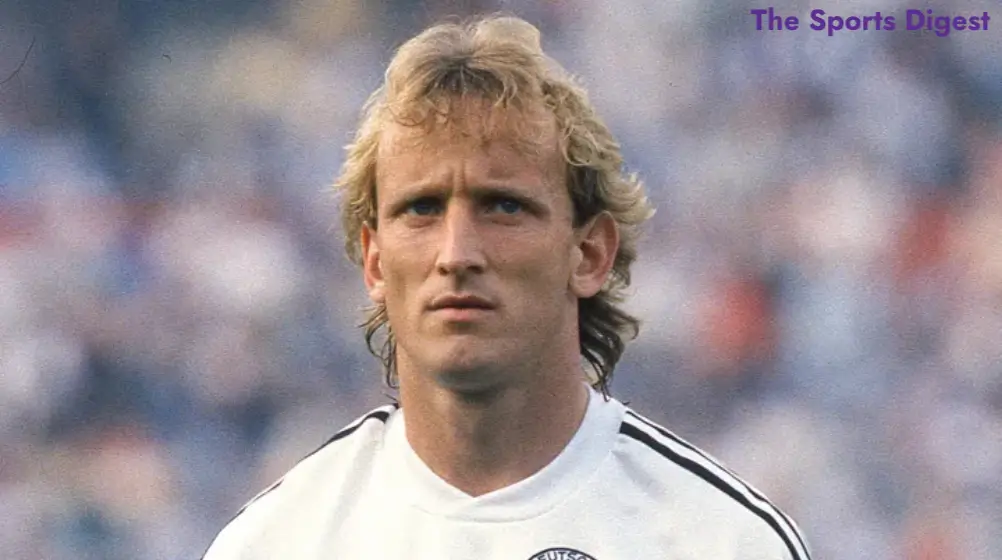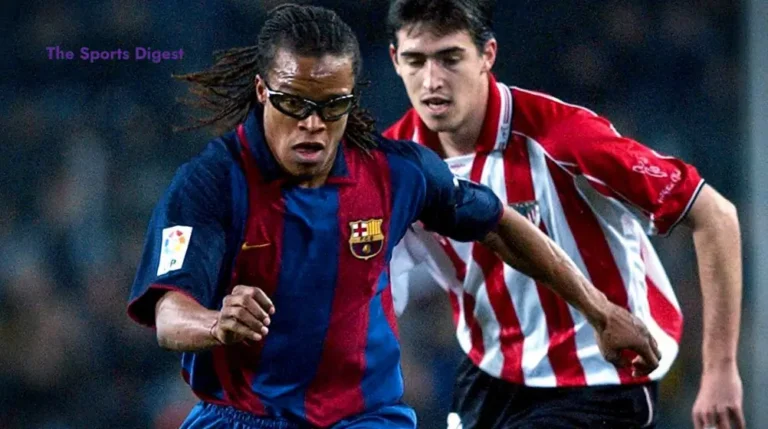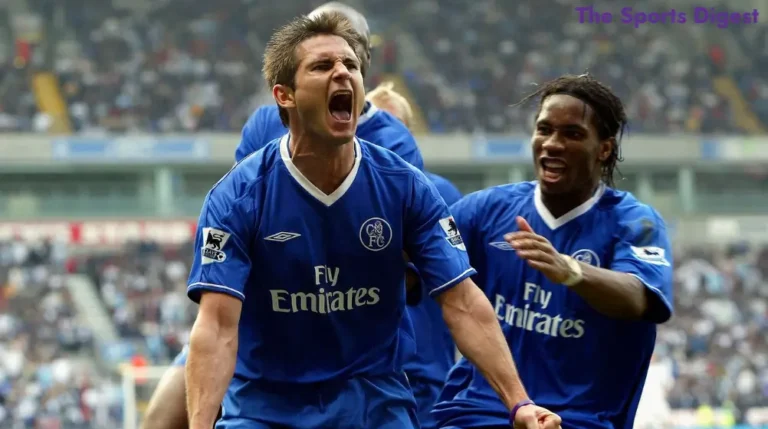Andreas Brehme: Germany’s 1990 World Cup Hero
Andreas Brehme, the German footballer who has remained unforgettable to sports fans worldwide, is considered one of the icons in football history. He etched his name in history with his decisive goal in the 1990 World Cup final against Argentina, a penalty in the 85th minute that led West Germany to victory. Beyond this remarkable achievement, Brehme’s career was filled with accomplishments and moments that made him one of the most prominent players in the 1980s and 1990s. In this article, we will review Brehme’s football journey, his achievements, and other details about his life both on and off the field.
Table of Contents
Early Beginnings of Andreas Brehme
Andreas Brehme began his football career at a young age with the German club Kaiserslautern in 1981. As he embarked on his Bundesliga journey, the player quickly proved himself as a highly promising talent. Within a short time, he became an essential part of the team. Over his five years with Kaiserslautern, from 1981 to 1986, he played 154 matches and scored 34 goals, making him one of the standout players in the German league.

These years marked a critical period in Brehme’s career, as he significantly developed and became one of the top players in his position. After five years of outstanding performance with Kaiserslautern, the time came for him to move to one of Germany’s biggest clubs, Bayern Munich.
Move to Bayern Munich and Career Development
In 1986, Andreas Brehme made the decision to move to Bayern Munich, one of the largest clubs in both Germany and Europe. This transfer turned out to be a pivotal moment in his career. During his four seasons at Bayern, from 1986 to 1988, Brehme played 59 matches and scored 7 goals. His time with the Bavarian club marked a significant development in his skills, as he played alongside world-class players and became an integral part of the team.
Brehme’s time at Bayern Munich was crucial in establishing his European and international fame. He was a key player in both the Bundesliga and European competitions. Over time, Brehme’s reputation spread across Europe, attracting the attention of other major clubs, marking the beginning of a new phase in his career with an Italian giant.
The Italian Journey with Inter Milan
In 1988, Andreas Brehme made the move to Italy, where he joined the prestigious Serie A club Inter Milan. This period represented a major turning point in his career. From 1988 to 1992, Brehme played 116 matches and scored 11 goals for Inter Milan. In Italy, he demonstrated extraordinary technical abilities and became an essential player for the club.
In the Italian league, known for its high level of competition, Brehme stood out as one of the few players who could make a significant impact. He was able to shine in both attack and defense, making him a key figure in Inter Milan’s lineup. This chapter of his career not only enhanced his playing skills but also boosted his reputation as one of the top players in European football.
Move to Spain with Real Zaragoza
In the 1992/1993 season, Brehme opted to pursue a new challenge in Spain by joining Real Zaragoza. He spent just one season with the Spanish club, playing 24 matches and scoring one goal. While his time at Real Zaragoza was brief, it contributed to his gaining more international experience.
As Brehme’s career continued, he decided to return to Germany, to the club where it all began, and play out the remaining years of his playing days.
Return to Kaiserslautern and End of His Playing Career
After his stint in Spain, Brehme returned to Kaiserslautern in 1993, rejoining the club where he had started his professional career. He spent another five years with the team, playing 120 matches and scoring 9 goals until his retirement in 1998. Though his time at Kaiserslautern was not as glamorous as his previous years, Brehme’s experience and leadership played a vital role in guiding the team and mentoring younger players.
At the end of 1998, Andreas Brehme decided to retire from professional football, leaving behind a legacy that would forever be remembered in the world of football.
Andreas Brehme with the German National Team: The Legend in the 1990 World Cup
Alongside his club achievements, Brehme’s contributions to the German national team were equally monumental. He represented Germany from 1984 to 1994, earning 86 caps and scoring 8 goals. However, his most iconic moment came in the 1990 FIFA World Cup in Italy.

In the final match of the tournament against Argentina, Germany was in need of a goal to secure their third World Cup title. Andreas Brehme was called upon to take a penalty in the 85th minute, and with great composure, he slotted the ball past Argentina’s goalkeeper to seal the victory for Germany. This goal not only secured the title but also cemented Brehme’s place in football history.
Brehme’s decisive role in that World Cup final earned him eternal admiration from German fans and football enthusiasts worldwide, making him one of Germany’s greatest footballers.
Coaching Career After Retirement
Following his retirement from playing, Brehme transitioned into coaching, taking on several managerial roles in Germany and abroad. While he did not achieve as much success as a coach compared to his playing career, his impact on developing young players and sharing his vast experience remained invaluable to the clubs he coached.

The Passing of Andreas Brehme
On February 20, 2024, Andreas Brehme tragically passed away at the age of 63 due to a sudden heart attack. His death left a void in the hearts of football fans around the world. Nevertheless, his legacy in the sport remains unshaken, and his remarkable career will never be forgotten.
Conclusion
Andreas Brehme was not just a footballer; he was a symbol of excellence, resilience, and talent in football history. Through his achievements at both the club and international levels, coupled with his iconic goal in the 1990 World Cup final, Brehme secured his place among the greatest footballers to ever play the game. His legacy will continue to inspire future generations, as his impact on the world of football is far from over.
Have you ever read an article like this?
There are no reviews yet. Be the first one to write one.






